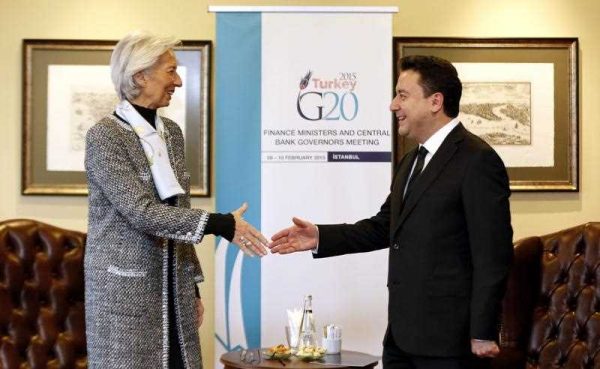In 2015 implementation for the G20 is most importantly about ensuring that the Brisbane Action Plan is carried out. At the Brisbane summit, world leaders agreed to work together to bring about a ‘Two-in-Five’ outcome. Countries committed to actions which, taken together, could be expected to raise world GDP by two per cent within five years (by 2018). But the framework will be difficult to manage, because the world is growing much more slowly than was expected a year ago, when the commitments were made. As a result, implementation of the promises might still give rise to a level of global output much lower than what was expected. Allowances will need to be made for this.
Investment lies at the core of what Turkey hopes to achieve. There is a widespread wish — worldwide — to achieve a very large increase in infrastructure investment immediately. Turkey intends to do something about this at the G20 Summit by forging agreement on a number of forms of international cooperation to promote such investment. It was one of the great successes of Australia’s presidency of the G20 that there was agreement to a strategy of stimulating investment in infrastructure, as part of the Brisbane Action Plan. Whatever is agreed at Antalya, there needs to be many more reforms in international financial markets, and in international policy regimes, before investment in infrastructure increases to the extent that is needed.
Inclusiveness is about helping the poorer members of society benefit from the process of economic growth. But inclusiveness also has an international dimension: it is about helping all countries benefit from the global growth process. It is vital to include emerging market economies in the global financial safety net. This safety net exists to protect nations from the threat of international financial instability.
As Adam Triggs writes compellingly, there is need for further reform of the IMF. The financial crisis drew attention to the fact that the IMF has not been able routinely to provide liquidity for countries that are threatened by the international withdrawal of capital funds. The IMF does have a Flexible Credit Line (FCL) and a Precautionary and Liquidity Credit Line (PLL). But countries need to pre-register for these programs, on the basis of having a strong policy framework in place and a good track record in economic performance. So far only three countries — Columbia, Mexico and Poland — have signed up for the FCL. This is essentially because there is a sense that if a country makes use of one of these credit lines then that would signal to private financial markets that the country is in financial difficulty.
All of this means that a crucial piece of the international financial architecture is missing. A valuable international financial reform would be to manage central bank swaps like those extended in the global financial crisis multilaterally through the IMF, rather than having such swaps arranged bilaterally between each country’s central bank and the Federal Reserve. Beyond this, the IMF could greatly strengthen and expand both its FCL and PLL, and make these programs more attractive to countries
Leadership is important for each president of the G20, and Turkey is no exception. Good leadership will help to achieve follow-through on a range of issues going beyond those discussed above. For example, leadership is necessary to ensure cooperation to bring down the costs of international payments by individuals — especially the remittances sent home by those people from very poor countries who are working abroad. The summit is also likely to make progress on outlawing the practice of tax shifting by large multinational corporations. And, hopefully, some form of consensus will emerge about what to do about climate change, in advance of the climate change conference in Paris in December.
In 2016 China will be president of the G20. China is now the second largest economy in the world, but it is still learning how to become a global leader. Leadership has many attributes. One can lead by example. This involves getting domestic policies right. China still has much to do in restructuring its growth model away from one which relies on growth of exports, and in ensuring that its financial sector acts in a sustainable manner.
One can lead, instead, by exercising power and forcing others to fall into line with your objectives. This is the way in which the US put together the ‘coalition’ of countries who recently signed the Trans-Pacific Partnership trade agreement. This may not be the best model for China to emulate.
One can lead by nurturing a forum like the G20, in which information is exchanged, discussions take place, preferences are articulated and compromises are reached. These things really have happened this year as part of the G20 process, not just at the level of national leaders, but also at the level of the G20 sherpas and other officials who are involved in the process. These exchanges are extremely important.
The main hope for the next two G20 Summits arises from these observations about leadership. In 2015 Turkey has used its Presidency of the G20 to lead much consensus-building activity. It will be good if, in 2016, China does the same thing, and more.
David Vines is a Professor of Economics, and a Fellow of Balliol College, at Oxford University. He is currently a Visiting Fellow at the Crawford School of Government at The Australian National University.

